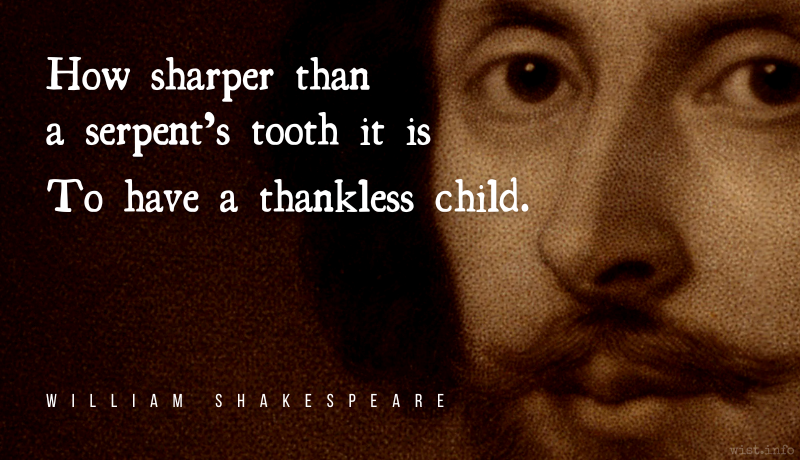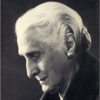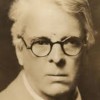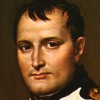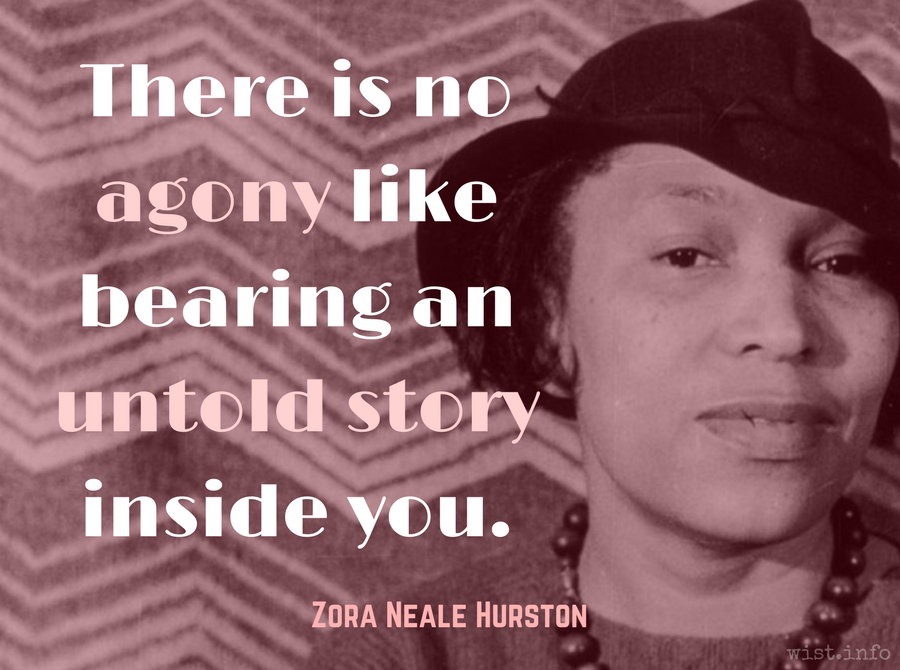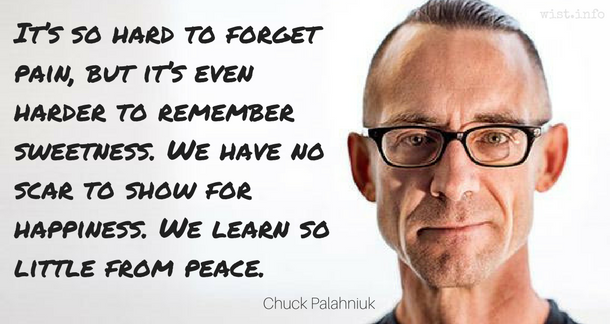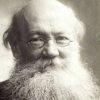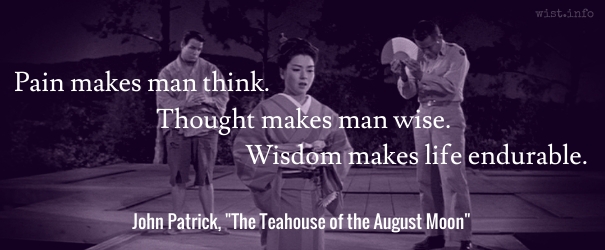To fight a real sorrow, a real loss, a real insult, a real disillusion, a real treachery was infinitely less difficult than to spend a night without sleep struggling with ghosts. The imagination is far better at inventing tortures than life because the imagination is a demon within us and it knows where to strike, where it hurts.
Quotations about:
pain
Note not all quotations have been tagged, so Search may find additional quotes on this topic.
There is a legend about a bird that sings just once in its life, more sweetly than any other creature on the face of the earth. From the moment it leaves the nest it searches for a thorn tree and does not rest until it has found one. Then, singing among the savage branches, it impales itself upon the longest, sharpest spine. Dying, it rises above its own agony to out-carol the lark and the nightingale. One superlative song, existence the price. But the whole world stills to listen, and God in His heaven smiles. For the best is only bought at the cost of the great pain. … Or so says the legend.
You have to laugh at the things that hurt you just to keep yourself in balance, just to keep the world from running you plumb crazy.
Ken Kesey (1935-2001) American novelist, essayist, countercultural figure
One Flew Over the Cuckoo’s Nest, Part 3 (1962)
(Source)
A goodly fellow by his looks, though worn
As most good fellows are, by pain or pleasure,
Which tear life out of us before our time;
I scarce know which most quickly: but he seems
To have seen better days, as who has not
Who has seen yesterday?
Tastes differ, but I know of no finer prayer than the one which ends old Indian dramas (just as in former times English plays ended with a prayer for the King). It runs: “May all living beings remain free from pain.”
[Der Geschmack ist verschieden; aber ich weiß mir kein schöneres Gebet, als Das, womit die Alt-Indischen Schauspiele (wie in früheren Zeiten die Englischen mit dem für den König) schließen. Es lautet: „Mögen alle lebenden Wesen von Schmerzen frei bleiben.”]
Arthur Schopenhauer (1788-1860) German philosopher
On the Basis of Morality [Über die Grundlage der Moral], § 19.4 (Part 3, ch. 8.4) (1840) [tr. Saunders (1965)]
(Source)
(Source (German)). Alternate translation:
In former times the English plays used to finish with a petition for the King. The old Indian dramas close with these words: "May all living beings be delivered from pain." Tastes differ; but in my opinion there is no more beautiful prayer than this.
[tr. Bullock (1903)]
He’s the one who gives us wine to ease our pain.
If you take wine away, love will die, and
every other source of human joy will follow.[τὴν παυσίλυπον ἄμπελον δοῦναι βροτοῖς.
οἴνου δὲ μηκέτ᾽ ὄντος οὐκ ἔστιν Κύπρις
οὐδ᾽ ἄλλο τερπνὸν οὐδὲν ἀνθρώποις ἔτι.]Euripides (485?-406? BC) Greek tragic dramatist
Bacchæ [Βάκχαι], l. 772ff [First Messenger/Ἄγγελος] (405 BC) [tr. Woodruff (1999)]
(Source)
Speaking of Dionysus. (Source (Greek)). Alternate translations:
He, the grape, that med'cine for our cares,
Bestow'd on favour'd mortals. Take away
The sparkling Wine, fair Venus smiles no more
And every pleasure quits the human race.
[tr. Wodhull (1809)]
He gives to mortals the vine that puts an end to grief. Without wine there is no longer Aphrodite or any other pleasant thing for men.
[tr. Buckley (1850)]
He hath given the sorrow-soothing vine to man
For where wine is not love will never be,
Nor any other joy of human life.
[tr. Milman (1865)]
He gives the soothing vine
Which stills the sorrow of the human heart;
Where wine is absent, love can never be;
Where wine is absent, other joys are gone.
[tr. Rogers (1872), l. 732ff]
’Twas he that gave the vine to man, sorrow’s antidote. Take wine away and Cypris flies, and every other human joy is dead.
[tr. Coleridge (1891)]
He gave men the grief-assuaging vine.
When wine is no more found, then Love is not,
Nor any joy beside is left to men.
[tr. Way (1898)]
This is he who first to man did give
The grief-assuaging vine. Oh, let him live;
For if he die, then Love herself is slain,
And nothing joyous in the world again!
[tr. Murray (1902)]
It was he,
or so they say, who gave to mortal men
the gift of lovely wine by which our suffering
is stopped. And if there is no god of wine,
there is no love, no Aphrodite either,
nor other pleasures left to men.
[tr. Arrowsmith (1960)]
They say that he
has given to men the vine that ends pain.
If wine were no more, then Cypris is no more
nor anything else delighted for mankind.
[tr. Kirk (1970)]
It was he who gave men the gift of the vine as a cure for sorrow. And if there were no more wine, why, there's an end of love, and of every other pleasure in life.
[tr. Vellacott (1973)]
Didn't he make us
Mortal men the gift of wine? If that is true
You have much to thank him for -- wine makes
Our labors bearable. Take wine away
And the world is without joy, tolerance, or love.
[tr. Soyinka (1973)]
The sorrow-ceasing vine he gives to mortals.
Without wine there is no Aphrodite,
nor longer any other delight for men.
[tr. Neuburg (1988)]
It was he,
so they say, who gave to us, poor mortals, the gift of wine,
that numbs all sorrows.
If wine should ever cease to be,
then so will love.
No pleasures left for men.
[tr. Cacoyannis (1982)]
He himself, I hear them say,
Gave the pain-killing vine to men.
When wine is no more, neither is love.
Nor any other pleasure for mankind.
[tr. Blessington (1993)]
He gave to mortals the vine that stops pain.
If there were no more wine, then there is no more Aphrodite
nor any other pleasure for mankind.
[tr. Esposito (1998)]
It's he who gave
To mortals the vine that stops all suffering.
Adn if wine were to exist no longer, then
Neither would the goddess Aphrodite,
Nor anything of pleasure for us mortals.
[tr. Gibbons/Segal (2000), l. 885ff]
He gave to mortals the vine that puts an end to pain. If there is no wine, there is no Aphrodite or any other pleasure for mortals.
[tr. Kovacs (2002)]
Besides, he's given us the gift of wine,
Without which man desires nor endures not.
[tr. Teevan (2002)]
He’s the god who brought the wine to the mortals. Great stuff that. It stops all sadness. Truth is, my Lord, when the wine is missing so does love and then… well, then there’s nothing sweet left for us mortals.
[tr. Theodoridis (2005)]
He is the one who gave us the vine that gives
pause from pain; and if there is no wine, there'll be no more
Aphrodite, & there is no other gift to give such pleasure to us mortals.
[tr. Valerie (2005)]
He gives to mortal human beings that vine which puts an end to human grief. Without wine, there's no more Aphrodite -- or any other pleasure left for men.
[tr. Johnston (2008)]
He is great in so many ways -- not least, I hear say,
for his gift of wine to mortal men.
Wine, which puts an end to sorrow and to pain.
And if there is no wine, there is no Aphrodite,
And without her no pleasure left at all.
[tr. Robertson (2014)]
When wine is gone, there is no more Cypris,
nor anything else to delight a mortal heart.
[tr. @sentantiq/Robinson (2015)]
He gave mortals the pain-pausing vine.
When there is no wine, Cypris is absent,
And human beings have no other pleasure.
[tr. @sentantiq (2015)]
I’ve heard he gave the grapevine to us mortals, as an end to pain.
And without wine, we’ve got no chance with Aphrodite. Or anything else good, for that matter.
[tr. Pauly (2019)]
He even gives to mortals the grape that brings relief from cares. Without wine there is no longer Kypris or any other delightful thing for humans.
[tr. Buckley/Sens/Nagy (2020)]
He gave mortals the pain-relieving vine.
But when there is no more wine, there is no Aphrodite
Nor any other pleasure left for human beings.
[tr. @sentantiq (2021)]
I tell you this, and I tell you plain:
What you have done, you will do again;
You will bite your tongue, careful or not,
Upon the already-bitten spot.Mignon McLaughlin (1913-1983) American journalist and author
The Neurotic’s Notebook, ch. 5 (1963)
(Source)
LEAR: How sharper than a serpent’s tooth it is
To have a thankless child.William Shakespeare (1564-1616) English dramatist and poet
King Lear, Act 1, sc. 4, l. 302ff (1.4.302-303) (1606)
(Source)
MERL: Funny thing about change, it’s like pulling off a bandage. Hurts like hell when you do it, but you always feel better after.
Hart Bochner (b. 1956) Canadian actor, film director, screenwriter, producer
Just Add Water (2008)
(Source)
The role of Merl Striker was played by Danny Devito.
And the host laughed and wept, and in the midst of their merriment and tears the clear voice of the minstrel rose like silver and gold, and all men were hushed. And he sang to them, now in the Elven-tongue, now in the speech of the West, until their hearts, wounded with sweet words, overflowed, and their joy was like swords, and they passed in thought out to regions where pain and delight flow together and tears are the very wine of blessedness.
J.R.R. Tolkien (1892-1973) English writer, fabulist, philologist, academic [John Ronald Reuel Tolkien]
The Lord of the Rings, Vol. 3: The Return of the King, Book 6, ch. 4 “The Field of Cormallen” (1955)
(Source)
Everywhere, wrenching grief, everywhere, terror
and a thousand shapes of death.[Crudelis ubique
Luctus, ubique pavor, et plurima mortis imago.]Virgil (70-19 BC) Roman poet [b. Publius Vergilius Maro; also Vergil]
The Aeneid [Ænē̆is], Book 2, l. 368ff (2.368-369) (29-19 BC) [tr. Fagles (2006), ll. 461-462]
(Source)
On the fighting in the streets of Troy. (Source (Latin)). Alternate translations:
In all parts cruell grief, in all parts feare,
And various shapes of death was every where.
[tr. Ogilby (1649)]
All parts resound with tumults, plaints, and fears;
And grisly Death in sundry shapes appears.
[tr. Dryden (1697)]
Every where is cruel sorrow, every where terror and death in thousand shapes.
[tr. Davidson/Buckley (1854)]
Dire agonies, wild terrors swarm,
And Death glares grim in many a form.
[tr. Conington (1866)]
And everywhere are sounds of bitter grief,
And terror everywhere, and shapes of death.
[tr. Cranch (1872), l. 506-507]
Everywhere is cruel agony, everywhere terror, and the sight of death at every turn.
[tr. Mackail (1885)]
Grim grief on every side,
And fear on every side there is, and many-faced is death.
[tr. Morris (1900)]
All around
Wailings, and wild affright and shapes of death abound.
[tr. Taylor (1907), st. 49, l. 440-41]
Anguish and woe
were everywhere; pale terrors ranged abroad,
and multitudinous death met every eye.
[tr. Williams (1910)]
Everywhere sorrow,
Everywhere panic, everywhere the image
Of death, made manifold.
[tr. Humphries (1951)]
All over the town you saw
Heart-rending agony, panic, and every shape of death.
[tr. Day Lewis (1952)]
And everywhere
are fear, harsh grief, and many shapes of slaughter.
[tr. Mandelbaum (1971), l. 497-98]
Grief everywhere,
Everywhere terror, and all shapes of death.
[tr. Fitzgerald (1981)]
Bitter grief was everywhere. Everywhere there was fear, and death in many forms.
[tr. West (1990)]
Cruel mourning is everywhere,
everywhere there is panic, and many a form of death.
[tr. Kline (2002)]
Raw fear
Was everywhere, grief was everywhere,
Everywhere the many masks of death.
[tr. Lombardo (2005)]
All around were bitter grief and fear, and different scenes of death.
[tr. Bartsch (2021)]
It is easy when you’ve been hurt by love to give it up as a bad job and make independence your new god, taking the love you had to give and turning it in upon yourself. And most of us have had to protect ourselves so much at times that we’ve given up the high road and taken the low. But independence carried to the furthest extreme is just loneliness and death, nothing more than another defense, and there is no growth in it, only a safe harbor for a while. The answer doesn’t lie in learning how to protect ourselves from life — it lies in learning how to become strong enough to let a bit more of it in.
Merle Shain (1935-1989) Canadian journalist and author
When Lovers Are Friends, ch. 1 (1978)
(Source)
Does anything in nature despair except man? An animal with a foot caught in a trap does not seem to despair. It is too busy trying to survive. It is all closed in, to a kind of still, intense waiting. Is this a key? Keep busy with survival. Imitate the trees. Learn to lose in order to recover, and remember that nothing stays the same for long, not even pain, psychic pain. Sit it out. Let it all pass. Let it go.
May Sarton (1912-1995) Belgian-American poet, novelist, memoirist [pen name of Eleanore Marie Sarton]
Journal of a Solitude, “October 6th” (1973)
(Source)
Nothing could be less worthy of you than to think anything worse than dishonor, infamous behavior, and wickedness. To escape these, any pain is not so much as to be avoided as to be sought voluntarily, undergone, and welcomed.
[Quid enim minus est dignum quam tibi peius quicquam videri dedecore flagitio turpitudine? Quae ut effugias, quis est non modo recusandus, sed non ultro adpetendus subeundus excipiendus dolor?]
Marcus Tullius Cicero (106-43 BC) Roman orator, statesman, philosopher
Tusculan Disputations [Tusculanae Disputationes], Book 2, ch. 5 (2.5) / sec. 14 [Marcus] (45 BC) [tr. Douglas (1990)]
(Source)
Original Latin. Alternate translations:
For what is more unsuitable to that high Character, than for you to think any thing worse, than dishonour, scandal, baseness? to avoid which, what Pain would not only not be declin'd, but also be eagerly pursu'd, undergone, encounter'd?
[tr. Wase (1643)]
For what is so unbecoming? What can appear worse to you, than disgrace, wickedness, immorality? To avoid which, what pain should we not only not refuse, but willingly take on ourselves?
[tr. Main (1824)]
For what is less worthy than for anything to appear worse to you than disgrace, turpitude, wickedness? which to escape, what pain is to be refused, or rather not to be welcomed, sought for, embraced?
[tr. Otis (1839)]
For what is so unbecoming -- what can appear worse to you, than disgrace, wickedness, immorality? To avoid which, what pain is there which we ought not (I will not say to avoid shirking, but even) of our own accord to encounter, and undergo, and even to court?
[tr. Yonge (1853)]
For what is more unworthy than that anything should seem to you worse than disgrace, crime, baseness? To escape these what pain should be not only not shunned, but voluntarily sought, endured, welcomed?
[tr. Peabody (1886)]
There is nothing more unworthy than for you to think anything worse than disgrace, criminal behavior, and infamous conduct. In order to escape these, any pain is not so to be rejected, as to be actively sought out, undergone, welcomed.
[tr. Davie (2017)]
I do not deny that pain is painful — otherwise, why would bravery be desired? But I do say that it is suppressed through patience, if we possess any amount at all. If we have none, then why do we raise philosophy on high and robe ourselves in its glory?
[Non ego dolorem dolorem esse nego — cur enim fortitudo desideraretur? — sed eum opprimi dico patientia, si modo est aliqua patientia: si nulla est, quid exornamus philosophiam aut quid eius nomine gloriosi sumus?]
Marcus Tullius Cicero (106-43 BC) Roman orator, statesman, philosopher
Tusculan Disputations [Tusculanae Disputationes], Book 2, ch. 14 (2.14) / sec. 33 (45 BC) [tr. @sentantiq (2020)]
(Source)
Original Latin. Alternate translations:
I do not deny Pain to be Pain, for what need else were there of Fortitude? but I say it may be suppress'd by Patience, if there be any such Virtue as Patience; if there be none, why do we magnifie Philosophy? or why do we value our selves in being denominated from her?
[tr. Wase (1643)]
I do not deny pain to be pain, for were that the case, in what would courage consist? but I say it should be assuaged by patience, if there be such a thing as patience: if there be no such thing, then why do we speak so in praise of philosophy? or why do we glory in its name?
[tr. Main (1824)]
That pain is pain, I do not deny; for why should fortitude be desired? but I say it is kept under by patience: -- if, at least, there be any patience. If there be no such thing, why do we extol philosophy? or why do we glory in her name?
[tr. Otis (1839)]
I do not deny pain to be pain; for were that the case, in what would courage consist? but I say it should be assuaged by patience, if there be such a thing as patience: if there be no such thing, why do we speak so in praise of philosophy? or why do we glory in its name?
[tr. Yonge (1853)]
I do not deny that pain is pain; else where were the need of fortitude? But I do say that pain is subdued by patience, if patience be a real quality; and if it be not, why do we lavish praises on philosophy? Or what is there to boast of in its name?
[tr. Peabody (1886)]
I don't deny that pain is pain -- otherwise why should there be felt a need for courage? But I say that it is overcome by endurance if only there is such a thing as endurance: if there isn't, why do we sing the praises of philosophy, or why are we boastful on its behalf?
[tr. Douglas (1990)]
Old women will often bear the lack of food for two or three days. But take food from an athlete for a single day, he will implore the very Olympian Jupiter for whose honor he is in training, and will cry that he cannot bear it. Great is the power of habit.
[Aniculae saepe inediam biduum aut triduum ferunt; subduc cibum unum diem athletae: Iovem, Iovem Olympium, eum ipsum, cui se exercebit, implorabit, ferre non posse clamabit.]
Marcus Tullius Cicero (106-43 BC) Roman orator, statesman, philosopher
Tusculan Disputations [Tusculanae Disputationes], Book 2, ch. 17 (2.17) / sec. 40 (45 BC) [tr. Peabody (1886)]
(Source)
Original Latin. Alternate translations:
Weak old Women oftentimes go without eating two or three days together; do but with-hold Meat one day from a Wrestler, he will cry out upon Olympian Jupiter; the same to whose Honor he shall exercise himself. He will cry he cannot bear it. Great is the Power of Custom.
[tr. Wase (1643)]
You may often hear of diminutive old women living without victuals three or four days; but take away a wrestler's provision for but one day, he will implore Jupiter Olympus, the very god for whom he exercises himself: he will cry out, It is intolerable. Great is the force of custom!
[tr. Main (1824)]
Tender old women often support a fast of two or three days. Withdraw his rations for one day from a wrestler; he will appeal to that Olympic Jove himself, for whom he exercises; he will cry out it impossible to bear it. Great is the force of habit.
[tr. Otis (1839)]
You may often hear of old women living without victuals for three or four days: but take away a wrestler's provisions but for one day, and he will implore the aid of Jupiter Olympius, the very God for whom he exercises himself: he will cry out that he cannot endure it. Great is the force of custom!
[tr. Yonge (1853)]
Feeble old women often endure hunger for two or three days. Take food away from an athlete for just one day. He will appeal to Jupiter, that Olympian Jupiter, the very one for whom he will be doing this training -- he will cry out that he can't bear it. Practice has great power.
[tr. Douglas (1990)]
Little old ladies often bear a two or three day period of fasting; but take away an athlete’s food for a day, and he will beg for relief from Jove! Olympian Jove, the one for whom he exercises! And he’ll tell you that he simply cannot bear it.
[tr. @sentantiq (2015)]
Old women regularly endure a lack of food for a period of three or four days; take from an athlete his food for a single day and he will appeal to olympian Jupiter, the very god in whose honor he trains, he will cry out that he can't bear it. The force of habit is considerable.
[tr. Davie (2017)]
Out of instinct for self-preservation, and logically enough, [the mind] asks, “If it is a good and holy thing to be punished, must it not also be a good and holy thing to punish?” It answers that it is; and our earth becomes the hell it is. Thus we human beings plant in ourselves the perennial blossom of cruelty — the conviction that if we hurt other people we are doing good to ourselves and to life in general.
Rebecca West (1892-1983) British author, journalist, literary critic, travel writer [pseud. for Cicily Isabel Fairfield]
“Pleasure Be Your Guide,” The Nation, “Living Philosophies” series #10 (25 Feb 1939)
(Source)
Adapted into Clifton Fadiman, I Believe: The Personal Philosophies of Certain Eminent Men and Women of Our Time (1952).
But indeed we need no further argument in favor of taking pleasure as a standard when we consider the only alternative that faces us. If we do not live for pleasure we shall soon find ourselves living for pain. If we do not regard as sacred our own joys and the joys of others, we open the door and let into life the ugliest attribute of the human race, which is cruelty.
Rebecca West (1892-1983) British author, journalist, literary critic, travel writer [pseud. for Cicily Isabel Fairfield]
“Pleasure Be Your Guide,” The Nation, “Living Philosophies” series #10 (25 Feb 1939)
(Source)
Adapted into Clifton Fadiman, I Believe: The Personal Philosophies of Certain Eminent Men and Women of Our Time (1952).
The belief that all higher life is governed by the idea of renunciation poisons our moral life by engendering vanity and egotism. But if we take gratification as our ideal we thereby impose on ourselves a program of self-restraint; for if we claim that we are under the necessity of learning all that we can about reality, and that we learn most through pleasure, we must also admit that we are under the necessity of hearing what our fellow-creatures learn about it and of working out a system by which we will curb our pleasures so that they do not interfere with those of others. If, however, we claim that it is by renunciation that we achieve wisdom, we have no logical reason for feeling any disapproval of conditions that thrust pain and deprivation on others.
Rebecca West (1892-1983) British author, journalist, literary critic, travel writer [pseud. for Cicily Isabel Fairfield]
“Pleasure Be Your Guide,” The Nation, “Living Philosophies” series #10 (25 Feb 1939)
(Source)
Adapted into Clifton Fadiman, I Believe: The Personal Philosophies of Certain Eminent Men and Women of Our Time (1952).
Is there any stab as deep as wondering where and how much you failed those you love?
Florida Scott-Maxwell (1883-1979) American-British playwright, author, psychologist
The Measure of My Days (1968)
(Source)
The pain others give passes away in their later kindness, but that of our own blunders, especially when they hurt our vanity, never passes away.
William Butler Yeats (1865-1939) Irish poet and dramatist
Journal entry #105 (18 Mar 1909)
(Source)
See also "Vacillation."
On the other hand, we denounce with righteous indignation and dislike men who are so beguiled and demoralized by the charms of pleasure of the moment, so blinded by desire, that they cannot foresee the pain and trouble that are bound to ensue; and equal blame belongs to those who fail in their duty through weakness of will, which is the same as saying through shrinking from toil and pain. These cases are perfectly simple and easy to distinguish. In a free hour, when our power of choice is untrammeled and when nothing prevents our being able to do what we like best, every pleasure is to be welcomed and every pain avoided. But in certain circumstances and owing to the claims of duty or the obligations of business it will frequently occur that pleasures have to be repudiated and annoyances accepted. The wise man therefore always holds in these matters to this principle of selection: he rejects pleasures to secure other greater pleasures, or else he endures pains to avoid worse pains.
[At vero eos et accusamus et iusto odio dignissimos ducimus, qui blanditiis praesentium voluptatum deleniti atque corrupti, quos dolores et quas molestias excepturi sint, obcaecati cupiditate non provident, similique sunt in culpa, qui officia deserunt mollitia animi, id est laborum et dolorum fuga. et harum quidem rerum facilis est et expedita distinctio. nam libero tempore, cum soluta nobis est eligendi optio, cumque nihil impedit, quo minus id, quod maxime placeat, facere possimus, omnis voluptas assumenda est, omnis dolor repellendus. temporibus autem quibusdam et aut officiis debitis aut rerum necessitatibus saepe eveniet, ut et voluptates repudiandae sint et molestiae non recusandae. itaque earum rerum hic tenetur a sapiente delectus, ut aut reiciendis voluptatibus maiores alias consequatur aut perferendis doloribus asperiores repellat.]
Marcus Tullius Cicero (106-43 BC) Roman orator, statesman, philosopher
De Finibus Bonorum et Malorum [On the Ends of Good and Evil], Book 1, sec. 33 (ch. 10) (44 BC) [tr. Rackham (1914)]
(Source)
Alt. trans.:
- "Then again we criticize and consider wholly deserving of our odium those who are so seduced and corrupted by the blandishments of immediate pleasure that they fail to foresee in their blind passion the pain and harm to come. Equally blameworthy are those who abandon their duties through mental weakness -- that is, through the avoidance of effort and pain. It is quite simple and straightforward to distinguish such cases. In our free time, when our choice is unconstrained and there is nothing to prevent us doing what most pleases us, every pleasure is to be tasted, every pain shunned. But in certain circumstances it will often happen that either the call of duty or some sort of crisis dictates that pleasures are to be repudiated and inconveniences accepted. And so the wise person will uphold the following method of selecting pleasures and pains: pleasures are rejected when this results in other greater pleasures; pains are selected when this avoids worse pains." [On Moral Ends, tr. Woolf (2001)]
- "But in truth we do blame and deem most deserving of righteous hatred the men who, enervated and depraved by the fascination of momentary pleasures, do not foresee the pains and troubles which are sure to befall them, because they are blinded by desire, and in the same error are involved those who prove traitors to their duties through effeminacy of spirit, I mean because they shun exertions and trouble. Now it is easy and and simple to mark the difference between these cases. For at our seasons of ease, when we have untrammelled freedom of choice, and when nothing debars us from the power of following the course that pleases us best, then pleasure is wholly a matter for our selection and pain for our rejection. On certain occasions however either through the inevitable call of duty or through stress of circumstances, it will often come to pass that we must put pleasures from us and must make no protest against annoyance. So in such cases the principle of selection adopted by the wise man is that he should either by refusing cerftain pleasures attain to other and greater pleasures or by enduring pains should ward off pains still more severe." [tr. Reid (1883)]
- "But we do accuse those men, and think them entirely worthy of the greatest hatred, who, being made effeminate and corrupted by the allurements of present pleasure, are so blinded by passion that they do not foresee what pains and annoyances they will hereafter be subject to; and who are equally guilty with those who, through weakness of mind, that is to say, from eagerness to avoid labour and pain, desert their duty. And the distinction between these things is quick and easy. For at a time when we are free, when the option of choice is in our own power, and when there is nothing to prevent our being able to do whatsoever we choose, then every pleasure may be enjoyed, and every pain repelled. But on particular occasions it will often happen, owing whether to the obligations of duty or the necessities of business, that pleasures must be declined and annoyances must not be shirked. Therefore the wise man holds to this principle of choice in those matters, that he rejects some pleasures, so as, by the rejection to obtain others which are greater, and encounters some pains, so as by that means to escape others which are more formidable." [On the Chief Good and Evil, tr. Yongue (1853)]
The barbarous custom of having men beaten who are suspected of having important secrets to reveal must be abolished. It has always been recognized that this way of interrogating men, by putting them to torture, produces nothing worthwhile. The poor wretches say anything that comes into their mind and what they think the interrogator wishes to know.
Napoleon Bonaparte (1769-1821) French emperor, military leader
Letter to Louis Alexandre Berthier (11 Nov 1798), in Correspondence Napoleon, Vol 5, #3605 [ed. Henri Plon (1861)]
(Source)
He imagined the pain of the world to be like some formless parasitic being seeking out the warmth of human souls wherein to incubate and he thought he knew what made one liable to its visitations. What he had not known was that it was mindless and so had no way to know the limits of those souls and what he feared was that there might be no limits.
Cormac McCarthy (1933-2023) American novelist, playwright, screenwriter
All the Pretty Horses (1992)
(Source)
The man who looks for security, even in the mind, is like a man who would chop off his limbs in order to have artificial ones which will give him no pain or trouble.
There are few of us who are not protected from the keenest pain by our inability to see what it is that we have done, what we are suffering, and what we truly are. Let us be grateful to the mirror for revealing to us our appearances only.
Samuel Butler (1835-1902) English novelist, satirist, scholar
Erewhon, ch. 3 “Up the River” (1872)
(Source)
We have all heard enough to fill a book about Dr. Johnson’s incivilities. I wish they would compile another book consisting of Dr. Johnson’s apologies. There is no better test of a man’s ultimate chivalry and integrity than how he behaves when he is wrong; and Johnson behaved very well. He understood (what so many faultlessly polite people do not understand) that a stiff apology is a second insult. He understood that the injured party does not want to be compensated because he has been wronged; he wants to be healed because he has been hurt.
Sorrow is how we learn to love. Your heart isn’t breaking. It hurts because it’s getting larger. The larger it gets, the more love it holds.
Sure, there are differences in degree, but we’ve got to stop comparing wounds and go out after the system that does the wounding.
There is not so much Comfort in the having of Children as there is Sorrow in parting with them.
Thomas Fuller (1654-1734) English physician, preacher, aphorist, writer
Gnomologia: Adages and Proverbs, #4932 (1732)
(Source)
A stranger to human nature, who saw the indifference of men about the misery of their inferiors, and the regret and indignation which they feel for the misfortunes and sufferings of those above them, would be apt to imagine that pain must be more agonizing, and the convulsions of death more terrible, to people of higher rank than to those of meaner stations.
The more you are drawn to put yourself in the place of the other person, the more you feel the pain inflicted upon him, the insult offered him, the injustice of which he is a victim, the more you will be urged to act so that you may prevent the pain, insult, or injustice.
The most general survey shows us that the two foes of human happiness are pain and boredom.
[Der allgemeinste Überblick zeigt uns, als die beiden Feinde des menschlichen Glückes, den Schmerz und die Langeweile.]
Arthur Schopenhauer (1788-1860) German philosopher
Parerga and Paralipomena, Vol. 1, “Aphorisms on the Wisdom of Life [Aphorismen zur Lebensweisheit],” ch. 2 “Of What One Is” [Von dem, was einer ist]” (1851) [tr. Saunders (1890)]
(Source)
(Source (German)). Alternate translation:
The most general survey shows that pain and boredom are the two foes of human happiness.
[tr. Payne (1974)]
Pain nourishes my courage. You have to fail in order to practice being brave. You can’t be brave if you’ve only had wonderful things happen to you.
Mary Tyler Moore (1936-2017) American actress, producer, and social advocate
Interview, McCall’s, Vol. 108 (1980)
(Source)
The more you try to avoid suffering, the more you suffer, because smaller and more insignificant things begin to torture you, in proportion to your fear of being hurt. The one who does most to avoid suffering is, in the end, the one who suffers most.
Philosophy easily triumphs over past ills and ills to come, but present ills triumph over philosophy.
[La philosophie triomphe aisément des maux passés et des maux à venir; mais les maux présents triomphent d’elle.]
François VI, duc de La Rochefoucauld (1613-1680) French epigrammatist, memoirist, noble
Réflexions ou sentences et maximes morales [Reflections; or Sentences and Moral Maxims], ¶22 (1665-1678) [tr Tancock (1959)]
(Source)
(Source (French)). French variants:
La philosophie triomphe aisément des maux passés et de ceux qu’un ne sont pas prêts d’arriver; mais les maux présents triomphent d'elle.
(1665)]
La philosophie ne fait des merveilles que contre les maux passés ou contre ceux qui ne sont pas prêts d’arriver, mais elle n’a pas grande vertu contre les maux présents.
[Manuscript]
Alternate English translations:
Philosophy may easily triumph over Evils past, as also over those not yet ready to assault a man; but the present triumph over it.
[tr. Davies (1669), ¶87]
Philosophy finds it an easie matter to vanquish past and future Evils, but the present are commonly too hard for it.
[tr. Stanhope (1694), ¶23]
Philosophy easily triumphs over past and future ills; but present ills triumph over philosophy.
[pub. Donaldson (1783), "Ills" ¶242]
Philosophy easily triumphs over ills both past and future; but present ills triumph over philosophy.
[ed. Carville (1835), "Ills" ¶211]
Philosophy easily triumphs over past and future ills: but religion only triumphs over the present ones.
[ed. Carville (1835), "Philosophers" ¶303]
Philosophy triumphs easily over past, and over future evils, but present evils triumph over philosophy.
[ed. Gowens (1851), ¶23]
Philosophy triumphs easily over past evils and future evils; but present evils triumph over it.
[tr. Bund/Friswell (1871)]
Philosophy easily masters past and future ills, but the sorrow of the moment is the master of philosophy.
[tr. Heard (1917)]
Philosophy easily conquers both past and future misfortunes, but is conquered by the misfortunes of the moment.
[tr. Stevens (1939)]
Philosophy can easily triumph over past misfortunes and over those that lie ahead: but the misfortunes of the present will triumph over our philosophy.
[tr. FitzGibbon (1957)]
Philosophy triumphs with ease over misfortunes past and to come, but present misfortunes triumph over it.
[tr. Kronenberger (1959)]
Philosophy triumphs easily over past and future evils; but present evils triumph over it.
[tr. Whichello (2016)]
I believe that the present suffering is nothing compared to the coming glory that is going to be revealed to us. The whole creation waits breathless with anticipation for the revelation of God’s sons and daughters. Creation was subjected to frustration, not by its own choice — it was the choice of the one who subjected it — but in the hope that the creation itself will be set free from slavery to decay and brought into the glorious freedom of God’s children. We know that the whole creation is groaning together and suffering labor pains up until now. And it’s not only the creation. We ourselves who have the Spirit as the first crop of the harvest also groan inside as we wait to be adopted and for our bodies to be set free. We were saved in hope. If we see what we hope for, that isn’t hope. Who hopes for what they already see? But if we hope for what we don’t see, we wait for it with patience.
Pain is a byproduct of life. That’s the truth. Life sometimes sucks. That’s true for everyone. But if you don’t face the pain and the suck, you don’t ever get the other things either. Laughter. Joy. Love. Pain passes, but those things are worth fighting for. Worth dying for.
Jim Butcher (b. 1971) American author
(Attributed)
Often cited to the short story "Vignette" (also known as "Publicity and Advertising"), but not found there.
The pain passes, but the beauty remains.
Pierre-Auguste Renoir (1841-1919) French Impressionist artist
(Attributed, 1919)
(Source)
Quoted in Sisley Huddleston, Paris Salons, Cafés, Studios (1928). When asked by a young Henri Matisse why he still painted when suffering from painful, twisting arthritis in his hands.
TITUS: These words are razors to my wounded heart.
William Shakespeare (1564-1616) English dramatist and poet
Titus Andronicus, Act 1, sc. 4, l. 320 (1.4.320) (c. 1590)
(Source)
Quite often, people who mean well will inquire of me whether I ever ask myself, in the face of my diseases, “Why me?” I never do. If I ask “Why me?” as I am assaulted by heart disease and AIDS, I must ask “Why me?” about my blessings, and question my right to enjoy them. The morning after I won Wimbledon in 1975 I should have asked “Why me?” and doubted that I deserved the victory. If I don’t ask “Why me?” after my victories, I cannot ask “Why me?” after my setbacks and disasters.
No pain, no palm;
No thorns, no throne;
No gall, no glory;
No cross, no crown.William Penn (1644-1718) English writer, philosopher, politician, statesman
“No Cross, No Crown” (1682)
Originally written while a prisoner in the Tower of London (1668-69). See Quarles (1821).








